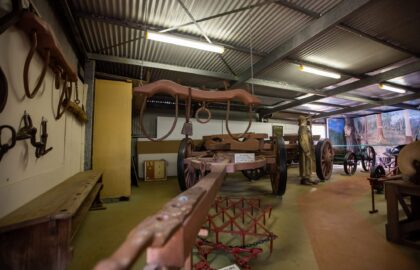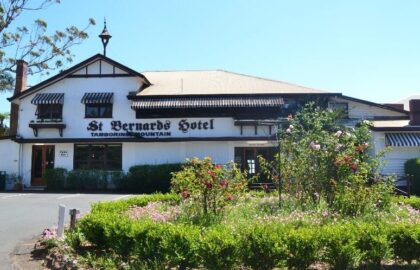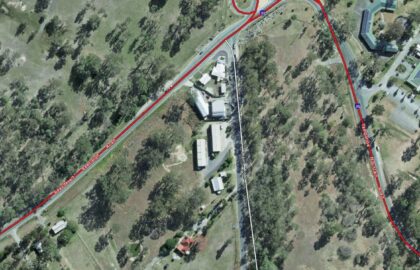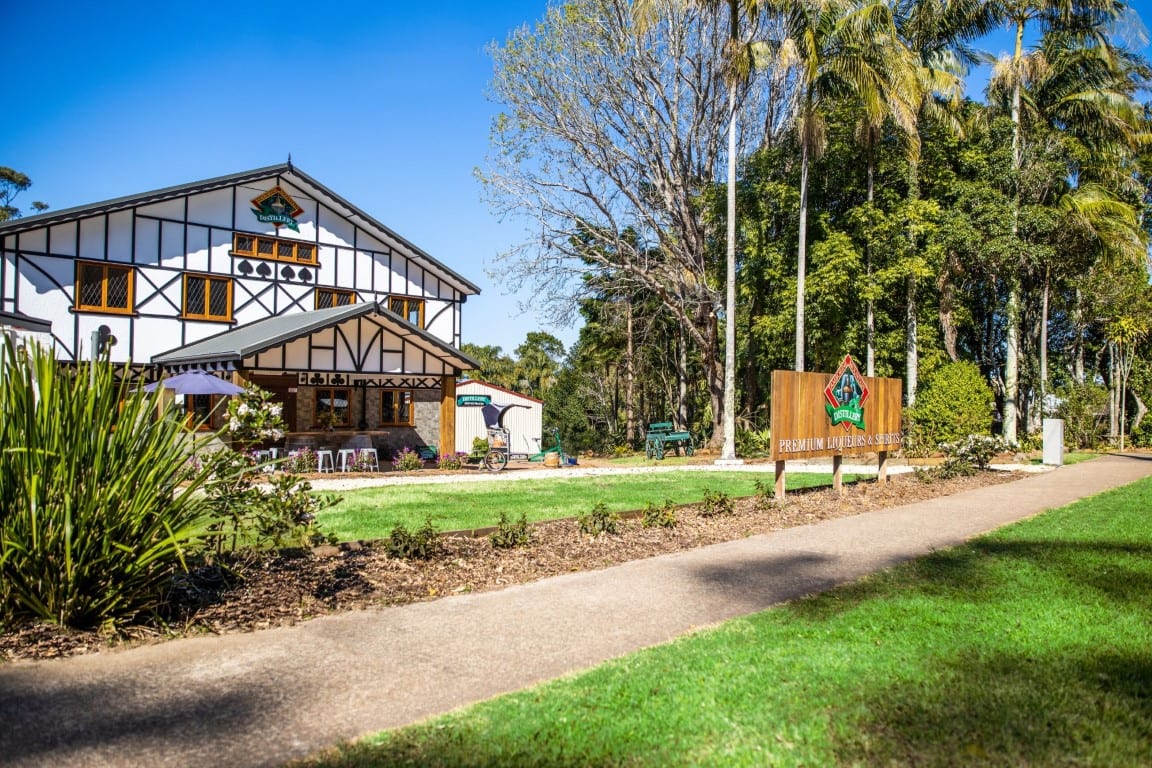
 There are plenty of places to get a great drink on the mountain, but you will be hard-pressed to find one with as much variety as Tamborine Mountain Distillery. A mountain staple since its opening in 1993, it has the honour of being the most awarded distillery in Australia this century—with 336 accolades, more than there are other distilleries in the country. Owner and manager Gordon Chalmers gives us the grand tour and shares a few trade secrets.
There are plenty of places to get a great drink on the mountain, but you will be hard-pressed to find one with as much variety as Tamborine Mountain Distillery. A mountain staple since its opening in 1993, it has the honour of being the most awarded distillery in Australia this century—with 336 accolades, more than there are other distilleries in the country. Owner and manager Gordon Chalmers gives us the grand tour and shares a few trade secrets.
by Kyle Hitchmough
What kind of drinks do you create here?
We are the opposite of almost every distiller in what we do. Most distilleries make whiskey, or they make gin or vodka or bourbon… they make one drink. They occasionally take that drink and drift it sideways like spiced rum. We do everything except Chinese and Japanese rice wines. We do make whiskey, but we just put it straight into a liquor. You have to age whiskey, and whiskey likes cold climates like Tasmania, Scotland, Ireland. This is rum country; rum loves the heat.
Where do you source your ingredients from?
Everywhere. We take as much out of Australian farmers and growers as we can, and we take as much off the mountain as we can. One of our award-winning gins, the ginger and rhubarb, comes from the mountain. Our signature drink, Wild Forest Plum, is from just across the border in Tweed Valley. We’ve pioneered that drink for years. Davidson plum is in five different drinks that we do.
Do you have a specialty in the variety you make?
Our speciality is probably an Australian version of absinthe. Wattle Toffee is one of our best sellers, but we’ve actually beaten the Italians with Limoncello. We’ve taken an Italian drink back to Italians and they like it better. It’s nice to see.
What goes into distilling good drinks?
Skill. Alla Ward, the original founder, was a very gifted distiller. She is a great cook, and a good chef has a good nose, can smell something and tell exactly what’s in it. She was able to take the original 1860 absinthe recipe and replicate it using some unique Australian ingredients like aniseed myrtle the classic aniseed you would use. It was the first absinthe made in Australia after the hundred-year ban, and she’s twisted it with a bit of Australian humour: it’s called Moulin Rooz.
Do you sell to other areas, like retailers?
Yeah, this is just one small part of our business. This is the tasting room, its experiential tourism. People want to go somewhere and have an experience, not just take a photo. The big things we’ll be doing are gin presses. People want to know how you make gin, what’s in it, and even have a go at making their own. They want to go through our factory and see the distiller working.

Do you bottle your own drinks here?
Everything’s bottled. We have three factories. The first one is the brewery, which we’ve converted to the distillery. Instead of making beer, we’re fermenting all the drinks. The biggest and oldest shed on the mountain we’ve taken to bits and rebuilt. We kept the frame since it’s about 80 years old and skinned it so it’s brand new but we’re still keeping the history, and we’ve built a brand new third one. We have a filling line in the middle shed that does thousands of bottles an hour.
Can you tell me more about your tastings?
With around 90 different drinks and seasonal ones coming and going, we cater to everyone. You get people who come in and just want to try gin, so they can have three gins straight through. We have people who like cocktails. We have people who don’t drink. A lot of Aussies haven’t had vodka since they were young and it was the first thing they got drunk on, so they blame the vodka. We convert them back since we have vodkas like lemon myrtle vodka, which is beautiful. Vodka on its own is a bit grim, but ours are flavoured. Ginger, chili, wild citrus… Lemon myrtle is our biggest one.
Are you a local? What’s your opinion on the Tamborine Mountain area and community?
I’ve been up here since 1999, when I moved up here to build Jasmine Organics, one of the biggest facilities on the mountain. It’s a great place to chill out: grab a bottle of grog and sit by the hang-gliders, watching the sun go down. I don’t think there’s anything more calming than that.
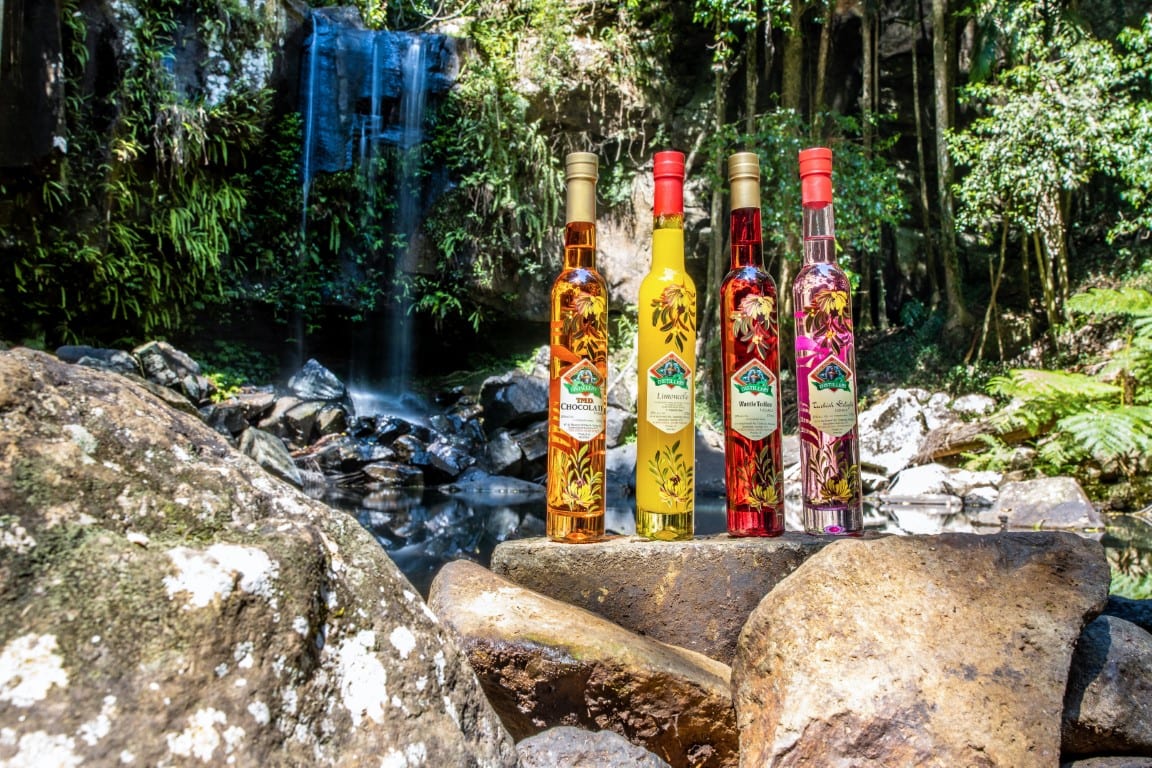
What do you think the distillery provides to the area?
History. I’m British. Most people have a cultural attachment back to their roots, like the pub at the bottom of the hill, people love walking in and getting that ambiance of old England. Alla was Russian-Ukranian. She grew up in Melbourne after the war, with all these displaced people, who were all making their own grog. The Italians made their grappa, the Russians made their vodka, the Germans made their schnapps… she grew up with those families, so she is brought all on that European culture, found in our 90 drinks. You could be from anywhere, you could be Czechoslovakian and Swedish from different parents, and we could give you your national drink.
Do you have any interesting stories from your time working here?
We had this older fellow, we still don’t know who he is, who stopped his ute and came over. He’d made up a complete space suit. White wellingtons, complete paint suit, a big face mask with a snorkel, and a spray bottle of sanitiser at his hip. He came in and bought a bottle, took his $50 note and sprayed it, turned it over with his gloves so big he could barely hold it, sprayed the other side and pushed it across the counter. We didn’t know whether to laugh or cry. We wrapped the bottle up, gave it to him, and Cammy, our general manager, took a coin out from the till, put it down, sprayed it, turned it over, sprayed it, and pushed it back across to him with a pencil. He mumbled “thank you” through his snorkel and walked out. We thought it must have been a setup.
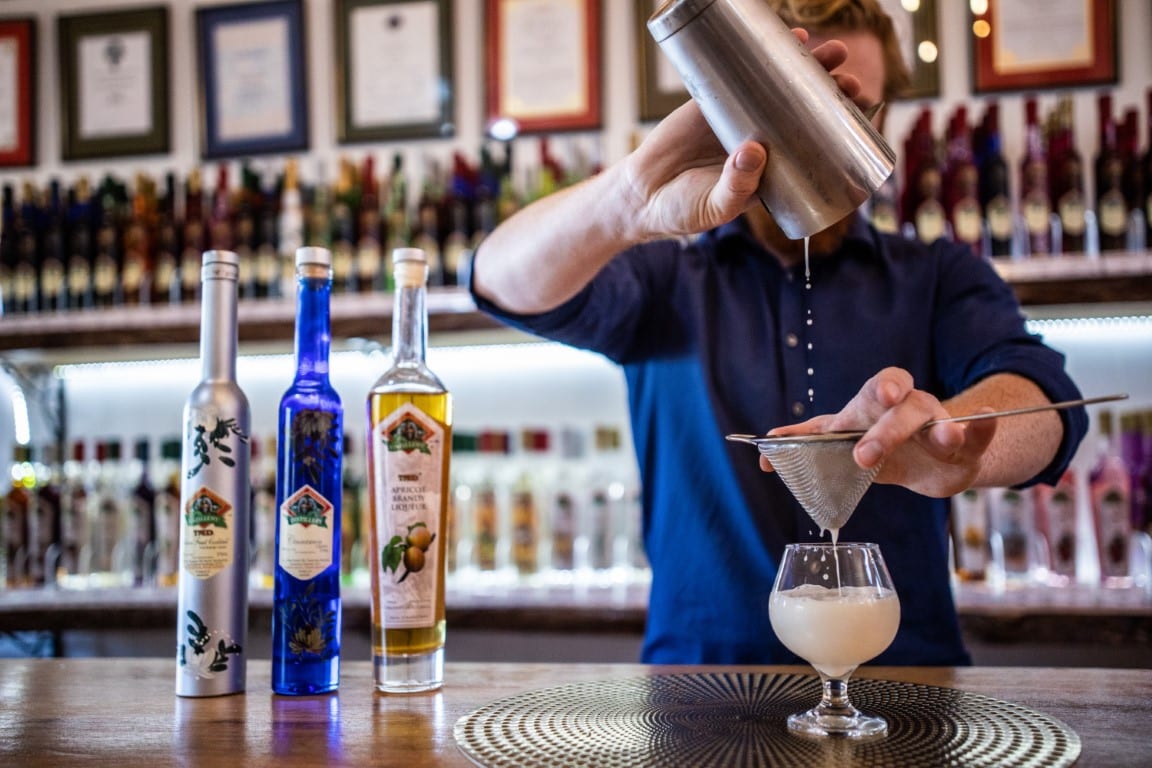
Is there anything else you’d like to add?
It’s great to see the locals come out again. It was good to meet them all during COVID. We gave a lot away to the community. We don’t have competitors; we affiliate with everyone. All the big B&Bs and restaurants send people here and we give them free tastings. And we send people back to them—if Three Little Pigs is sending people here, we tell people to go eat there when they ask us “where should we go for lunch?”
We are always looking for new topics for our blog. If there’s something you like to see more of, email your suggestions to: social@professionalsserendipity.com.au, or email the writer at kyle.hitchmough@hotmail.com.






